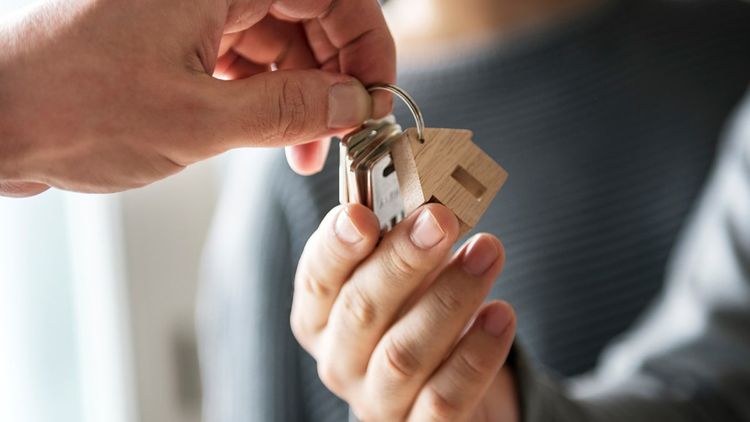In this article
Can I get a mortgage with bad credit?
Discover how you can improve your chances of buying a house with bad credit.

Getting a mortgage can be a bit more challenging if you have a bad credit score, but the good news is that it’s still possible. To learn about the way credit scores affect mortgage applications, and how you can improve your chances of buying a house with bad credit, read on.
How does bad credit affect getting a mortgage?
A bad credit score can affect your chance of getting a mortgage, because lenders see this as a sign that you might not be able to repay the money you borrow.
When you apply for a mortgage, one of the first things lenders will look at is your credit history. Your credit history is a record of how you’ve used credit in the past, such as when you’ve applied for it and whether you’ve paid it back. They’ll use this to judge whether you’d be able to make the repayments needed. So, if you’ve missed several payments on existing loans or there’s evidence that you struggle to manage your debt effectively, they may feel it’s riskier to offer you a mortgage.
However, it’s still possible to buy a home even if you have a low credit score, because what lenders really care about is your ability to pay back the money you borrow and stick to the terms of your agreement with them. Your credit score is just one of the measures that they use to predict whether you’ll be able to do this.
They’ll also look at how much money you have available each month – what you earn, minus regular expenses like utilities, childcare, council tax and so on. If you have enough left over to afford your mortgage repayments, lenders may still be willing to make you an offer.
I have a steady income but a bad credit score – how does this affect my chances of getting a mortgage?
If you have a steady income but a low credit score, it’s still possible to get a mortgage. However, you may be asked to put down a larger deposit – for example, 20-25% of the purchase price instead of the usual 5-10% – or pay a higher interest rate.
Lenders will also consider the size of your income compared to the amount of money you’re borrowing. If they’re happy that the mortgage won’t stretch you too far, they might approve your application regardless of how poor your credit score is.
If your credit score is bad because you’ve never needed to use credit in the past, you might still be able to get a mortgage from a high-street bank. There are also some lenders who specialise in offering mortgages to customers with no credit history or a poor credit score. So if this is you, it’s worth shopping around to find a lender whose products are designed for your situation.
How can I improve my chances of getting a mortgage with a bad credit score?
There are a few things you can do that may boost your chances of being approved for a mortgage if you have poor credit:
- Add a note of correction to your credit report. If you have a reasonable explanation for any past financial difficulties – for example, if you were made redundant or couldn’t work due to sickness – add this to your credit report for lenders to see
- Focus on properties you can realistically afford. Very few mortgages offer 95-100% loan-to-value, so set your sights on homes in a suitable price range
- Get a guarantor if you need one. A parent or older relative may be able to reassure lenders that they’ll cover your monthly payments, if for any reason you can’t
- Make a joint application. Lenders may be prepared to overlook your bad credit score if you apply for a mortgage together with someone who has a better one
How can I build my credit score to get the mortgage I want?
Improving your credit score and keeping it healthy will show lenders that you’re capable of paying your borrowings back. Not only will this help you get a good mortgage deal, but it’ll also increase your chances of being accepted for other credit products, like credit cards or car finance.
Having a credit card for bad credit can a great way to build up your financial history if you make your payments on time and stay within your credit limit. Plus, here are some other key steps you can take that may give your credit score a boost and improve your chances of getting approved for the mortgage you’re after.
Pay off your existing debts
Credit reference agencies (CRAs) are less likely to award you a high credit score if you have a lot of existing borrowings, as extra credit could make your debts unmanageable. That’s why it’s best to pay off as much as you can, whenever you can.
Register to vote
Being listed on the electoral register makes it easier for lenders and CRAs to check that you are who you say you are. You don’t actually have to vote, but simply registering to do so can add several points to your credit score.
End financial associations with people who have bad credit
Anyone that you share a joint account with will be considered a financial association. Being financially associated with someone who has a bad credit score can negatively affect your own score, so it’s a good idea to remove their name from your account.
Check for mistakes on your credit report
Even small mistakes like an incorrect spelling or wrong address can damage your credit score, so it’s best to check regularly whether all your details are as they should be. You can do this free of charge.
For even more tips and guidance on how to improve your credit score and boost your chances of getting a mortgage, visit our Building Credit hub.
Failure to make payments on time or to stay within your credit limit means that you will pay additional charges and may make obtaining credit in the future more expensive and difficult.
Contributors


You might also like
Slide 1 of 3
Budgeting to buy a house
Find out how to budget and build credit to buy your dream home.

Dealing with money worries
Find out how to deal with debt stress and money worries in a practical way.

Advantages of using a credit card
From spreading costs to building credit history, learn the benefits of credit cards when used responsibly.
The smart way to build better credit
Aqua is the credit card that gives you the power to improve your credit score
